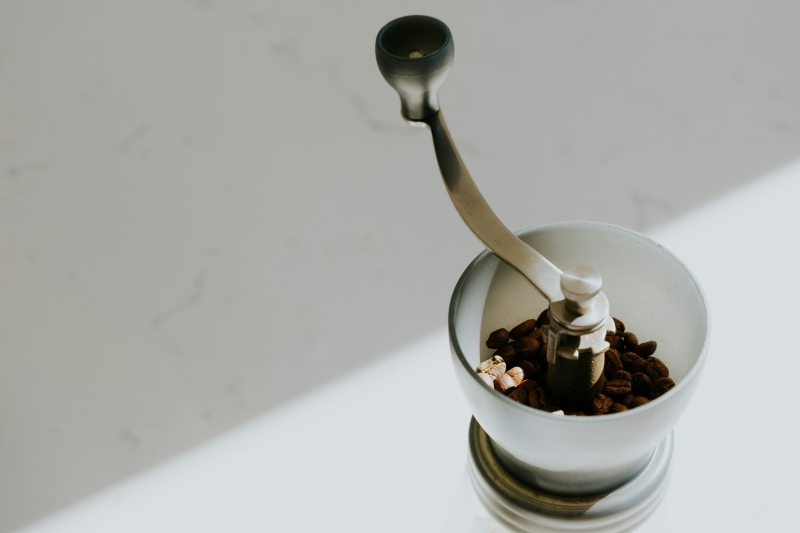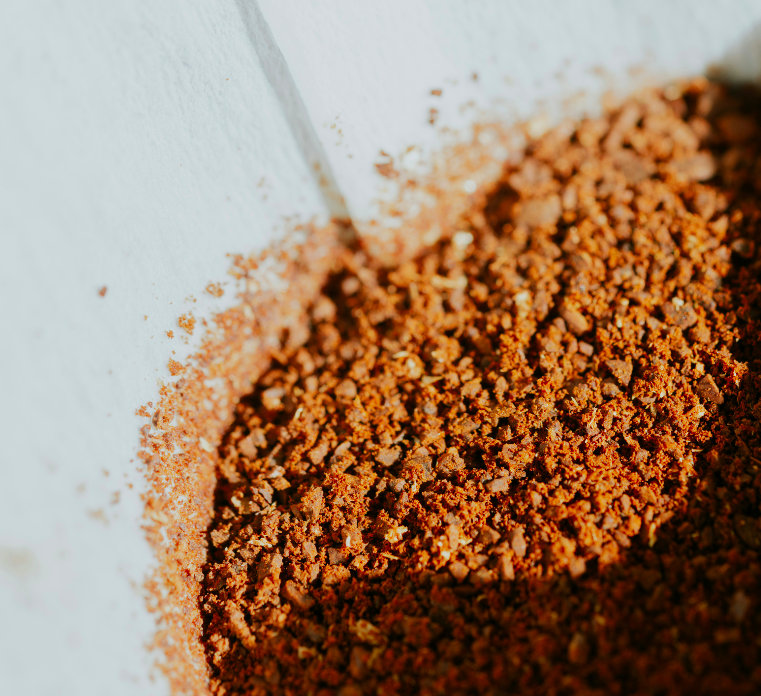Words by Katie Burnett
Buying coffee off the shelf at your local grocery store or roastery can be overwhelming for many reasons, but one of the questions that we ask the most is “is it better to buy ground coffee or whole beans?”. For many reasons, our go-to answer is beans and the reason for that is largely coffee freshness. However, there are many scenarios where buying ground coffee is probably the best way to go.
Coffee in whole bean form stays fresh for longer. Coffee ageing and staling occurs because of exposure to oxygen, like all perishable food items. We’re probably all aware of the disappointment around a stale bag of coffee. Stale coffee can smell like cardboard or a damp cupboard, and it can range from tasting extremely bitter to having very little taste at all. This is because as it ages, it loses its flavour as oils and aroma compounds evaporate over time.
When coffee is ground, the total surface area of the coffee that is directly exposed to oxygen is dramatically increased. More oxygen exposure means much more rapid aging. Undeniably, it is “better” to buy coffee as whole beans for shelf life.
However, there are a couple of factors that impact this and could mean that buying ground coffee is better. The first, and the obvious, is access to a grinder. If you don’t have a grinder, you need to buy pre-ground coffee. More than that, access to a good grinder. Believe it or not, the quality of the grind of the coffee is very important. A high quality grinder will grind your coffee evenly and uniformly across all the coffee particles.

Image by Yohan Marion
A uniform grind means that all the particles of ground coffee are the same size. This is extremely important when extracting the coffee. Uniform grounds means that all the coffee grounds will be extracted in the same way, at the same rate. If your grounds aren’t uniform, some particles can be overextracted and some underextracted in the same brew. Uniform grounds are very important for a great brew.
It is far from a general rule that your local coffee supplier will have a great grinder, but the chances are that it’s probably better than ours at home. Unless you are investing thousands of Rands into equipment and maintenance, it’s likely that you’re not achieving uniformity in your grounds. So what should we do? In this case, it’s recommended that you buy your coffee pre-ground from your local roastery and buy less at a time, ensuring you’re using your coffee as quickly as possible and not letting it sit in the cupboard for too long. After opening your bag of ground coffee (when it is still sealed, shelf life is extended), it will begin aging quickly and I’d recommend drinking it at a maximum of two weeks after the seal has been cracked. After that, go grab a fresh bag.
Ideally, you would buy ground coffee every week and drink it within 5-7 days of opening the seal. This isn’t necessarily realistic for everyone tough. Roasteries aren’t always that accessible, coffee isn’t consumed quick enough to buy a new bag every week, etc. In these situations, there are a couple of things we can suggest:
Try to reseal your bag after each time you open it. Your coffee will still be continuously exposed to oxygen as you open it, but the less the better. Moving your coffee into an airtight, resealable container or bag can help extend shelf life and maintain fuller flavour.
Freeze some of your ground coffee as soon as you get home. Pre-dose enough coffee for the next three days and put the rest in your freezer (not the fridge). The freezer dramatically slows down aging and can extend the life of the portion of your bag that would usually sit in the cupboard for a week. You can also put the whole bag in the freezer, but the continuous opening and closing of the bag and moving it in and out of the freezer will lessen the effectiveness of the preservation in the freezer. Leaving it untouched is the best option. If you’d like to freeze all of the coffee, rather pre-dose all of it and take out each dose as you need it. Medical tubes or small ziploc bags are great for this.
For coffee, ageing is not always a bad thing. Coffee needs to be rested. In the roasting process, the beans are exposed to extreme temperatures and the particles of the beans undergo extreme damage. The roasting process is extremely volatile and results in many particles being broken down, releasing many oils and gases. Over the 2 weeks after the coffee is roasting, it will be releasing gas particles, this is called degassing and it occurs most rapidly immediately after roasting and slows down over two weeks. Brewing the coffee too soon after roasting, while the coffee is still degassing aggressively, can result in a poor brew. The reason for this is that the gas particles being released are sitting between the coffee grounds and the water, inhibiting extraction. So, if you buy your coffee close to the roast date and pre-ground, it would be advisablel to allow the coffee for your next three days to sit out and age a little bit to reach it’s optimal state. If you buy whole beans, this period might be more like 7-10 days, after which the coffee is at it’s flavour peak.
It’s important to experiment and find what works for you. Tweak your approach according to how quickly you drink your coffee and maybe start putting some cash aside for a grinder in the future. Happy brewing!

Image by Yohan Marion